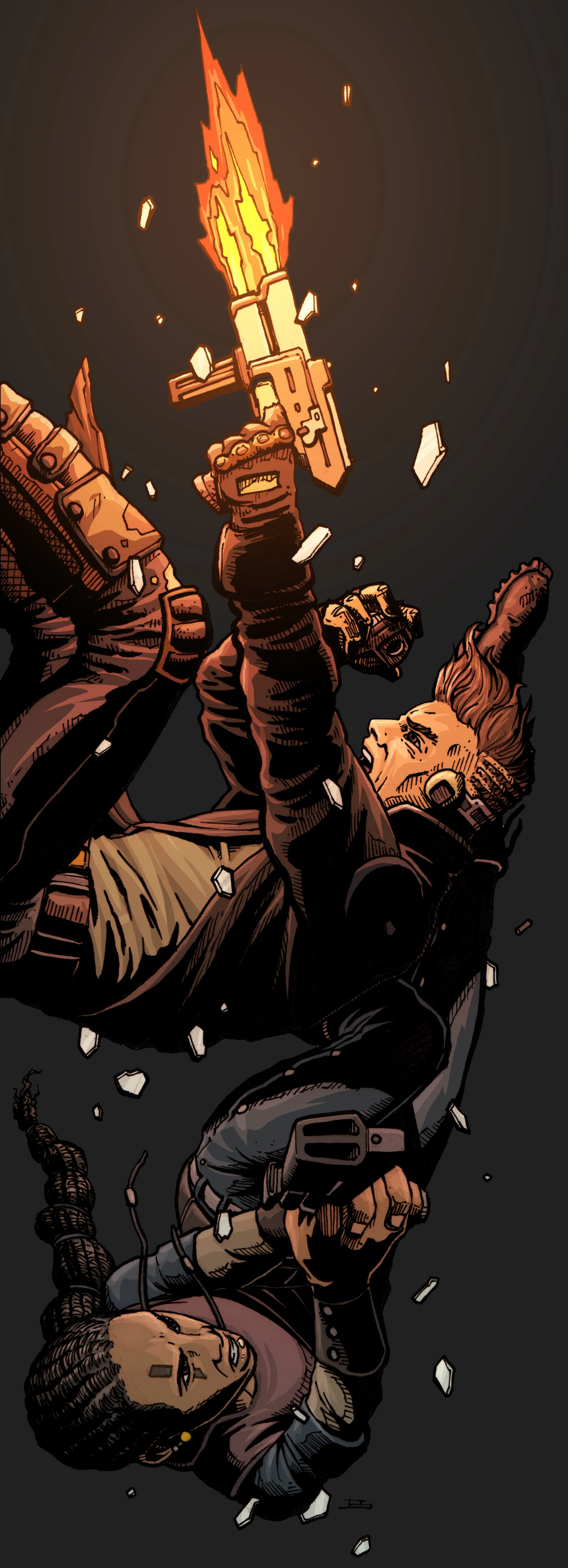Warning: Pre-Alpha
This game is currently in pre-alpha, and at this time, I do not recommend running a game in it yet. Every single game mechanic and piece of lore is subject to potentially breaking changes.
Thank you for your interest in this game! You can follow its development at https://www.youtube.com/@trekiros
-Trek
Core Principles
Here are the 5 core principles for this game. They explain what kind of experience it attempts to create, and how it goes about it.
Problem Solving
The obstacles in the players' way should be ones that can be overcome through creativity and wits.
Ideally, the players should want to try a bunch of different ideas before they resort to "can I roll [x]?"
In practice, this means empowering the players with plenty of versatile tools and abilities, so they can interact with the scene in different ways.
This game should also provide the Plot Twister with many ideas for encounters and adventures which promote this kind of play (WIP).
Tactics
The game should reward players who can think on their feet, analyze a dangerous situation and adapt their plan to it.
Ideally, a player should never feel like they have to take the same sequence of actions in two different encounters.
In practice, this means designing enemies and obstacles which can create situations where there is an optimal choice for the players, but that choice is not necessarily obvious, and what that choice is can change from one moment to the next.
Teamwork
This is a collaborative game, so the team dynamics should be at the forefront of everyone's minds.
Ideally, in combat, on most of the players' turns, something should happen that helps another player. A turn where the only thing that happens is that enemies take damage, should be rare.
Out of combat, this means overcoming obstacles should take more than one person to succeed, most of the time.
In practice, this means providing options for players to fulfill different, complementary roles with low overlap between them, both in and outside of combat.
Character Expression
This is a game about incarnating a fictional character and experiencing their story through their eyes.
Ideally, a character's personality and aesthetic should shine through every single action they take. If you're a juggernaut, you're not just attacking: you're attacking like a juggernaut. You're not just talking, you're talking like a juggernaut. You're not just tinkering, you're tinkering like a juggernaut.
In practice, for the players, this means being given abilities, in and out of combat, which fit their character's concepts.
For the Plot Twister, this means providing plenty of ideas for encounters and scenarios which involve big decisions, and moral dilemmas, so that they can never stop asking their players "what kind of survivors do YOU want to be?"
Accessibility
This game should not assume the players' interest, and punish them for not knowing about some deep, hidden interaction between obscure rules. Instead, it should try to earn the players' interest and attention by being easy to learn and operate.
Ideally, a player should be able to meaningfully participate, without having to even read the rules of the game, and the tools provided to the Plot Twister should be intuitive and work right out the gate.
In practice, this means providing a fully integrated web app, which guides the players and the Plot Twister through the experience of playing and running this game.

In order to produce this experience, this game has two modes of play:
- Combat: played in a structured, turn-based manner, to ensure fair arbitration when the stakes are at their highest.
- Free-form: played in a loose, improvisational manner, to leave space for the creativity of both the players, and the Plot Twister.